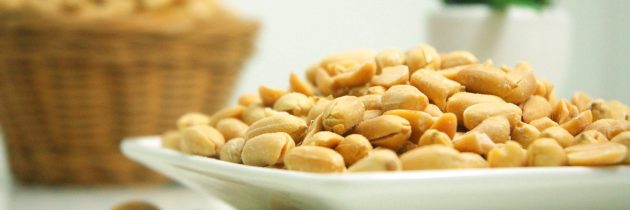The Top 10 Foods for a Healthy Brain
What does the food you eat have to do with the health of your brain? Apparently, quite a lot. Research indicates that adult brains are dynamic, continually undergoing growth and repair and that our diet plays a key role. Many people are inclined to turn to supplements but our diet is fundamental.
Your food choices may be the most powerful factor you can control that relates to the health and performance of your brain.
Incorporating 10 brain superfoods into your diet will help increase your productivity and cognitive abilities
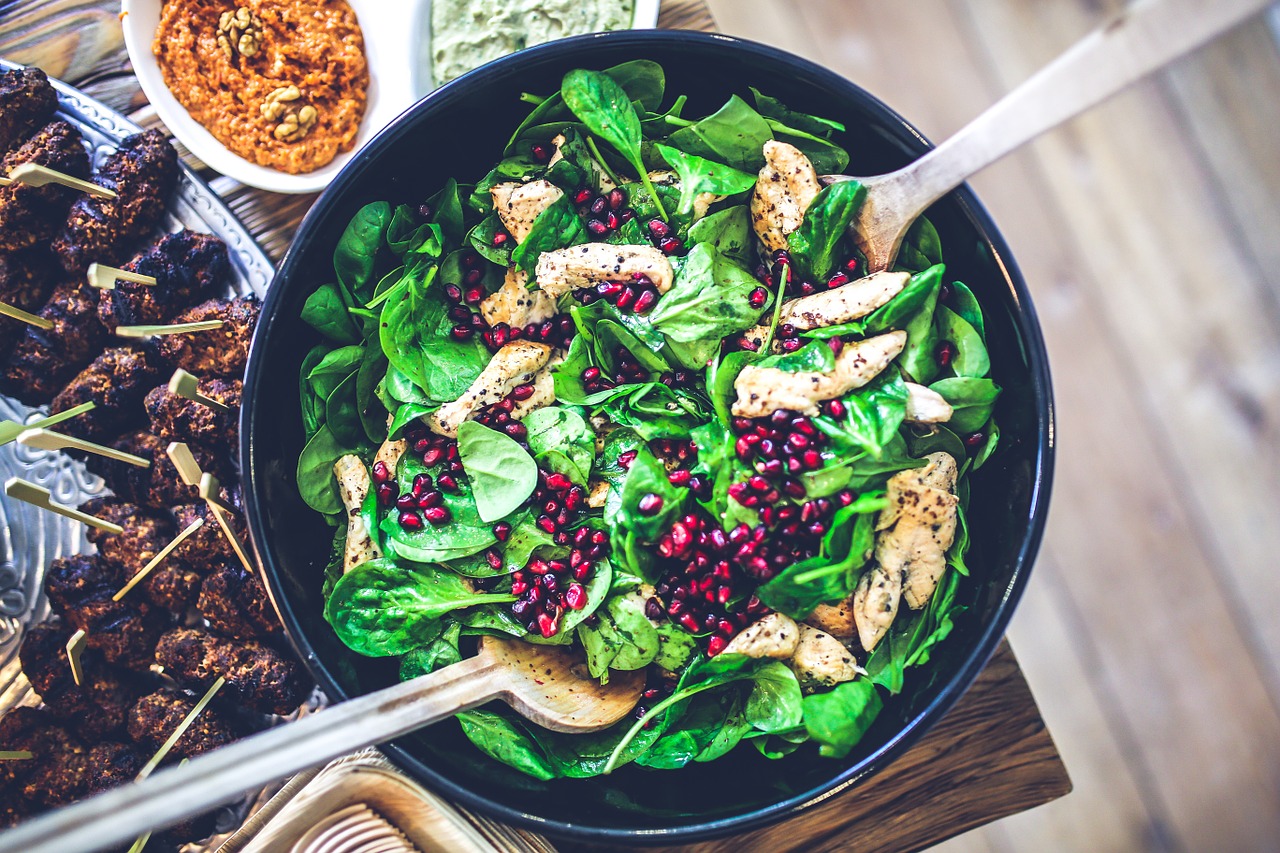
Dark Leafy Greens
Spinach, kale and any leafy green vegetables are rich in many brain-loving nutrients such as lutein and zeaxanthin – two carotenoids which have been shown to increase processing speed and working memory. Lutein was also found to increase the ability to use learned knowledge and experience.

Peanuts (see 2 of my favorite peanut recipes below)
Peanuts are a power-packed super food for the brain. We know how nutrient-dense berries are; peanuts rival berries as a brain-enhancing source of antioxidants.
All peanuts are low on the glycemic index and high in fiber, meaning our bodies digest them slowly, keeping blood sugar levels stabilized (keeping cravings and hunger away). With the brain using half of the body’s glucose supply, it needs a steady flow to work optimally.
The MIND diet, which was specifically developed as an eating plan to prevent cognitive decline, to improve brain function and protect against dementia such as Alzheimer’s disease, incorporates peanuts into a considerable part this healthful diet.
Peanuts are abundant in many essential nutrients the brain requires such as biotin, vitamin E, niacin, phosphorus, magnesium, choline, thiamine and magnesium. In fact, peanuts are a potent source of magnesium, similar to the avocado, while being low in sodium and cholesterol-free. Peanuts are not only a versatile food, they also provide protein and other nutrients, such as healthy monounsaturated fat that leads to improved cognitive health.
Peanuts have a variety of additional health benefits:
- Promote heart health
- Boost weight loss
- Stop hunger and cravings
- Reduce inflammation
- Can help prevent cancer
- Can help prevent diabetes
Peanuts and peanut butter are extremely versatile and can be used to create any number of tasty meals, snacks or treats. Now that you know how healthy peanuts are for you, here are two delicious recipes I keep on hand to help optimize a healthy body and mind.
Peanutty Oaxacan Turkey Chili
Ingredients
5 teaspoons peanut oil, divided
1 pound ground turkey breast
1 medium onion, chopped
1 medium green bell pepper, chopped
4 garlic cloves, chopped
2 tablespoons ground ancho chile pepper
2 tablespoons chili powder
1 teaspoon ground cumin
¼ teaspoon ground cinnamon
1 (14.5-ounce) can no salt added diced
tomatoes
1 (15-ounce) can no salt added black
beans, drained and rinsed
1 cup fresh or frozen corn kernels
1 cup low-sodium chicken broth
6 tablespoons creamy peanut butter
1 ounce, semi-sweet chocolate, chopped
1 teaspoon salt
Instructions
- Heat 1 tablespoon of the oil in a Dutch oven over medium-high. Add the turkey and cook, breaking into smaller pieces, until no longer pink, about 4 minutes; transfer to a bowl.
- Return the pot to the stove and heat the remaining 2 teaspoons oil over medium-high. Add the onion, bell pepper and garlic; cook, stirring occasionally, until slightly softened, 3-4 minutes. Stir in the ancho chili, chili powder, cumin and cinnamon; cook, stirring, 30 seconds. Add the tomatoes, beans, corn, broth and peanut butter. Bring to a boil, reduce the heat to medium-low, cover and simmer, stirring occasionally, 20 minutes. Remove from the heat and stir in the chocolate until melted. Season with the salt.
Here’s one of my favorites when I’m craving something sweet and crunchy:
Chocolate Covered Peanut Clusters
Ingredients
- 1/2 cup peanut butter
- 6 ounces milk chocolate (or stevia sweetened)
- 10ounces salted and roasted peanuts
Instructions
Set a heatproof bowl over a pan of barely simmering water or use a double boiler. Add the peanut butter and chocolate and stir until melted and smooth.
Add the peanuts and stir to coat well. Drop by rounded spoonful onto a waxed or parchment paper lined baking sheet and chill until firm, about 30 minutes. Make them as large or small as you choose. Enjoy!
I’ve also included a link to a Moroccan-inspired breakfast dish, Spicy Eggs with Smoked Peanuts, from The Peanut Institute.
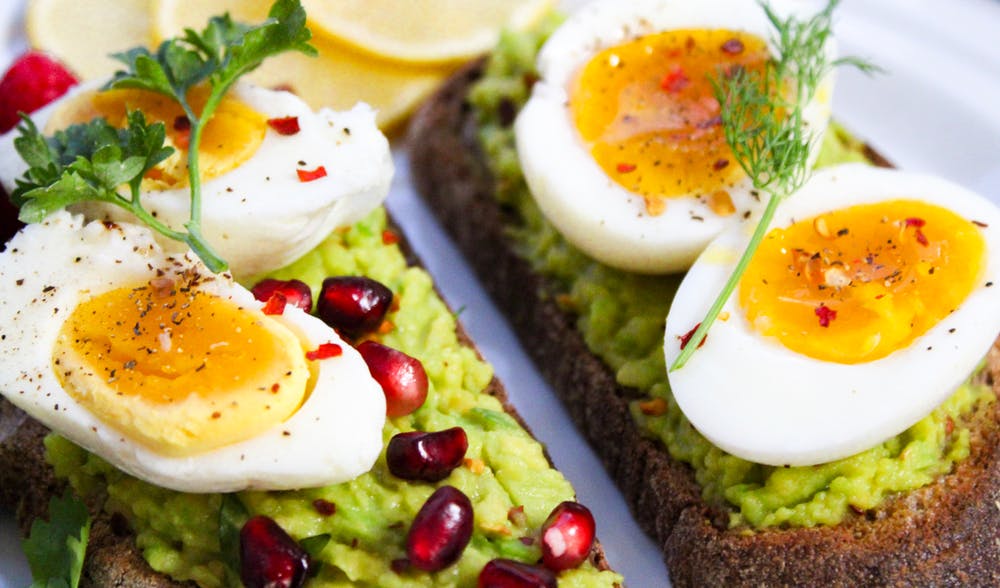
Pastured Eggs
Like L-theanine found in black or green tea, egg yolks contain choline, another nootropic which promotes the creation of acetyl-choline, a neurotransmitter that supports learning, memory and deep sleep. Eggs are the top known source of choline containing 125 mg of choline in its yolk. Other great sources include liver, seafood and shellfish.
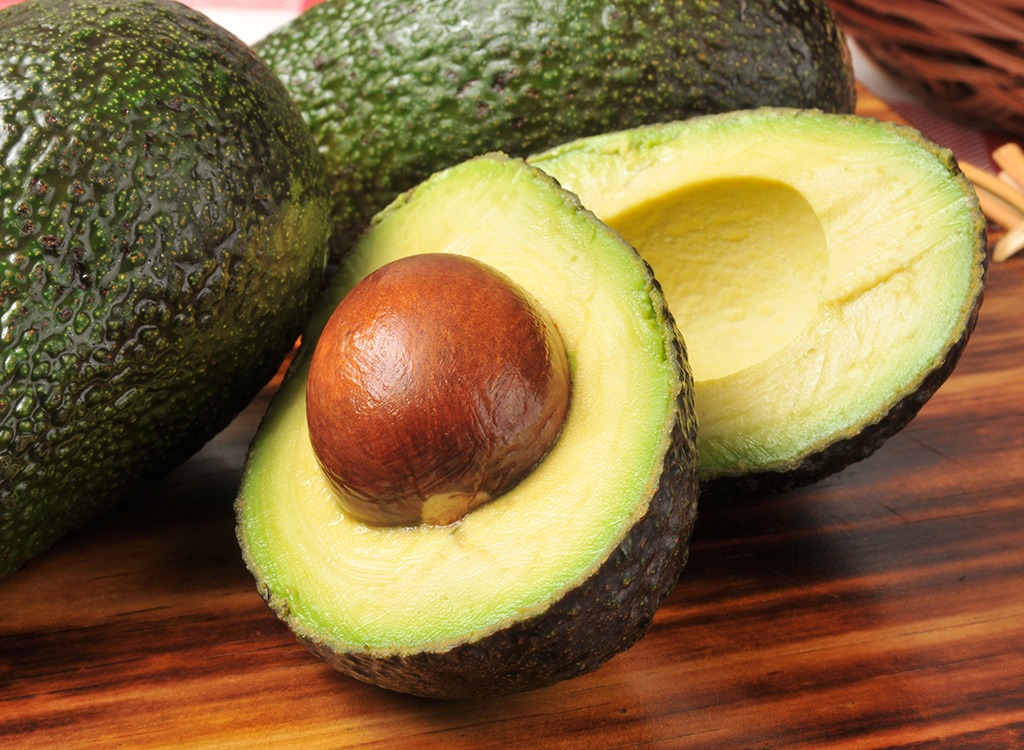
Avocados
From avocado toast to avocado smoothies, these creamy fruits are exploding and for good reason. Avocados taste delicious and are rich in healthy monounsaturated fats that promote healthy blood flow to the brain. In fact, avocados are almost as good as blueberries to optimize brain health. Avocados also help to lower blood pressure due to the abundance of magnesium. Hypertension is a risk factor for cognitive decline.
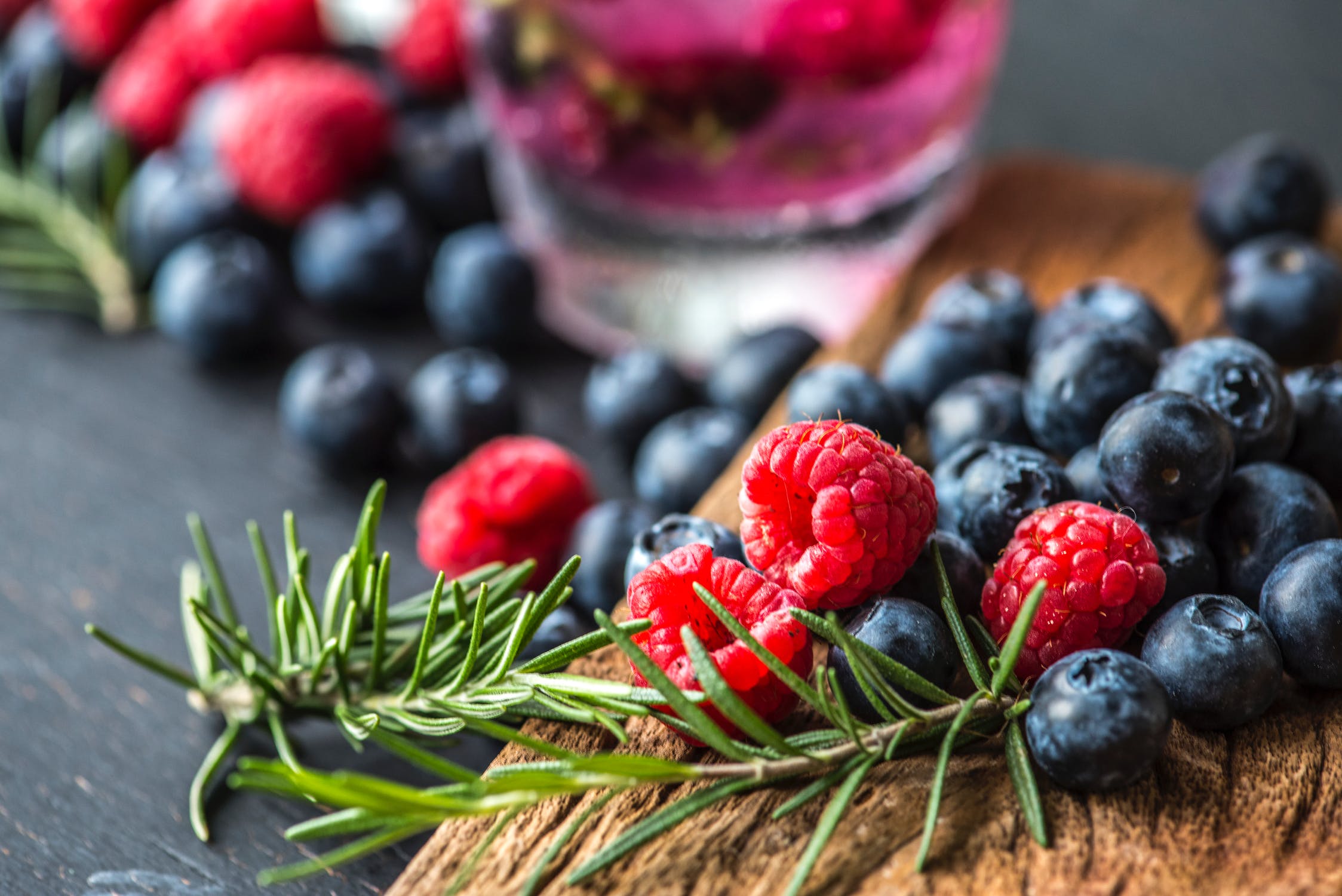
Berries
Blueberries, strawberries, raspberries, blackberries and others are packed with flavonoids or antioxidants. The good news? Not only are they delicious, but they can potentially slow aging in the brain and elsewhere. There is strong scientific evidence that berries can help prevent age-related memory loss as well. In fact, berries are the only fruit proven to decrease neuron loss and improve memory.
The compounds in berries, antioxidants and phytonutrients, protect cells from damage by harmful free radicals. Additionally, the phytonutrients change the way neurons in the brain communicate. These signaling changes can prevent low-level inflammation in the brain that contributes to neuronal damage and improve memory and cognition.
Of all the berries, however, research shows that blueberries reign berry supreme when it comes to brain health.
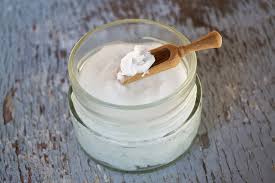
Coconut Oil
Coconuts are a superfood high in healthy fat and fiber. The medium-chain triglycerides (MCTs) fat in coconut oil bypass your normal digestive system and go straight to your liver where they are converted into ketones which produce energy in the brain and improves alertness, cognition, memory and mood.
Coconut oil is also a neuroprotective and increases serotonin that helps boost mood and provides an anti-stress effect – chronic stress can wreak havoc on the brain.
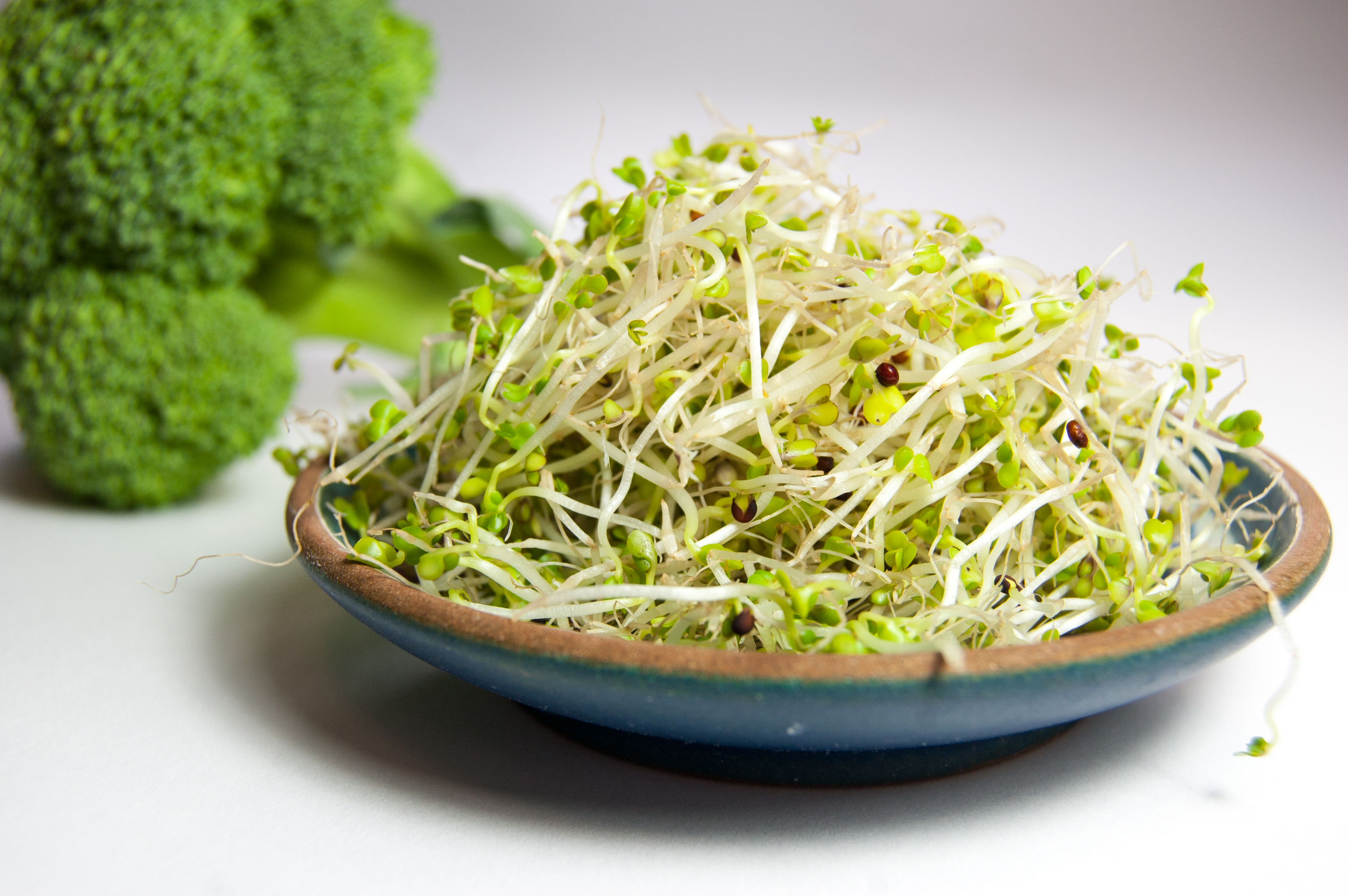
Broccoli Sprouts
Broccoli sprouts are a nutritional superhero in their ability to optimize health, strengthen bones, fight cancer and heart disease and much more. Broccoli sprouts and its cruciferous cousins such as cauliflower, cabbage, arugula and broccoli can also increase brain health but broccoli sprouts provide 100X more benefit.
When we chew broccoli sprouts, the active component sulphoraphane is released and this activates the NRF2 pathway triggering the release of powerful antioxidants. Neuroinflammation is a key player in less effective working memory and executive function.
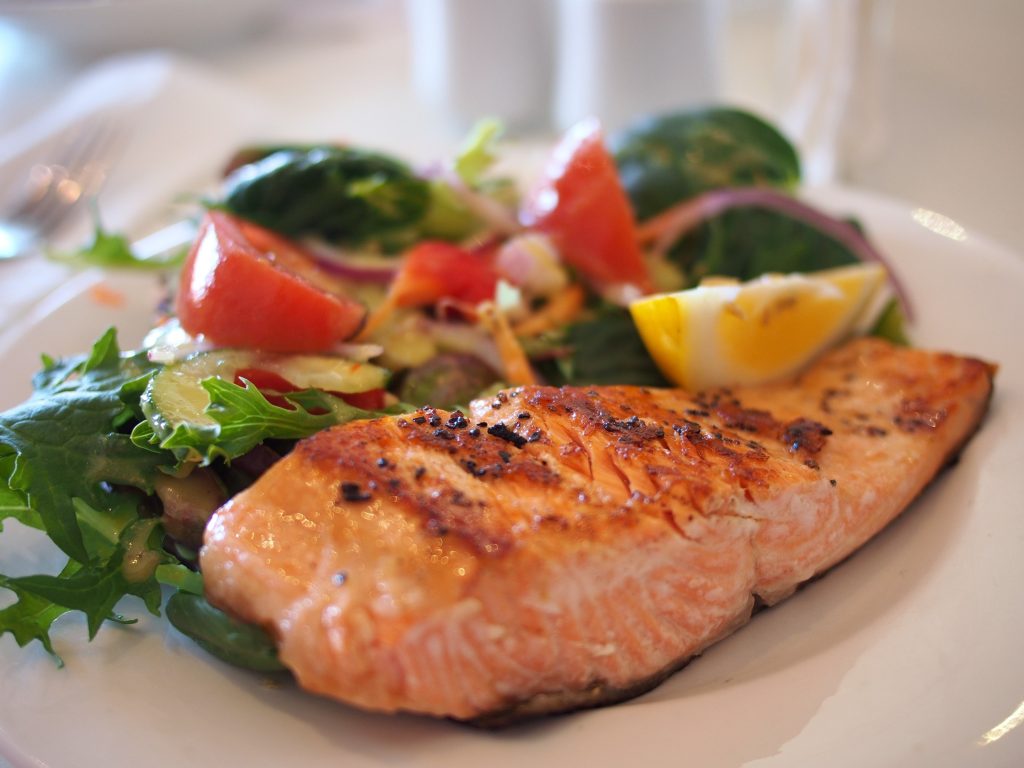
Wild Salmon
Salmon is very high in protein which alone is necessary for optimal brain health. However, salmon is also very rich in micronutrients such as magnesium, B vitamins, zinc, vitamin D and choline – all of which help support brain health.
Salmon is also high in omega-3 fats that play an important role in brain function and development. In fact, research reveals that very low levels of omega-3s may accelerate brain aging.
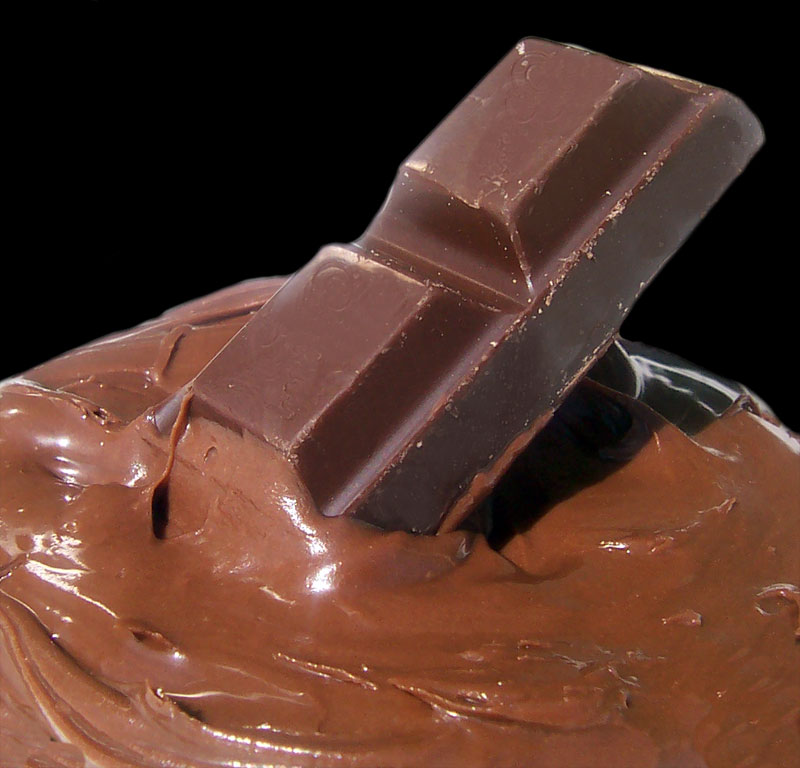
Dark Chocolate
Chocolate is always a welcome treat and, if it is dark chocolate, becomes guilt-free. Dark chocolate that is 80% or more cacao is a very powerful source of antioxidants that can improve the function of your brain. The cocoa also improves blood flow to the brain while protecting against heart disease.

Tea
Teas are packed with neuro-protective antioxidants and polyphenols. Teas such as green and black are particularly good for mental health and cognition. The energy and alertness derived from tea is a combination of caffeine and the calming amino acid l-theanine, which is particularly rich in green tea.
Remember not to add any dairy such as milk or cream to your tea as it blocks the absorption of antioxidants.

Coffee
If you like coffee, you are in luck. Recent research has found that it is protective from neurological conditions such as Alzheimer’s disease, Parkinson’s and Multiple Sclerosis. The caffeine in coffee might also block gene pathways involved in systemic inflammation. A higher level of this type of inflammation has been associated with reduced cognitive performance. Coffee is also shown to increase longevity.
As with tea, using dairy in your coffee such as milk, cream or half and half, can hinder some of the benefits.

Water
Okay, not a food, but a necessary part of optimizing brain health. Drinking water has impressive benefits, and it should. Water is a key component to human life. Why? Our bodies are 78% water and our brain is 80% water. Water is required for every single process in the human body.
Our brain is mostly water, and why, when we are mildly dehydrated, we can experience foggy thinking. Drinking water consistently, to stay ahead of dehydration, will help you think, focus, concentrate better and be more alert.
Even mild dehydration can affect one’s cognitive functioning. When cellular function slows due to dehydration, so does your brain’s energy output and as a result younfeel fatigued or have foggy thinking. Drink up to keep your brain healthy and working properly.
You can help to powerfully optimize and support your brain health, boost your alertness, memory and even your mood by including these top 10 foods in your diet.





